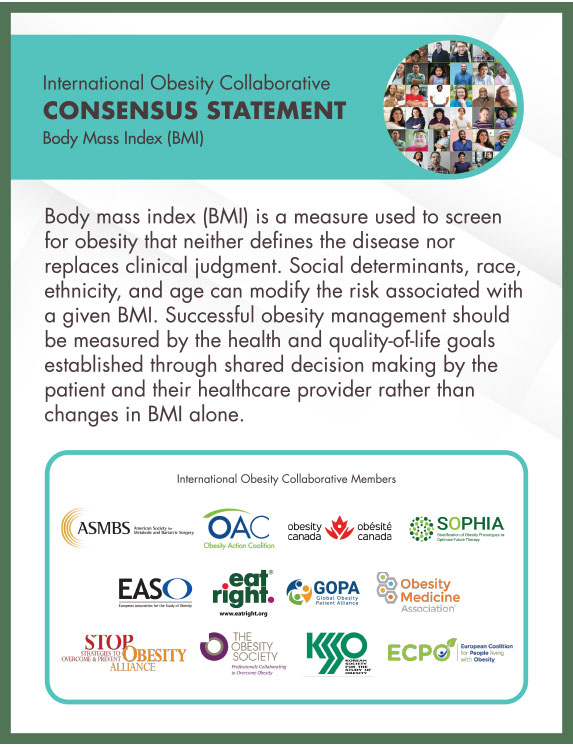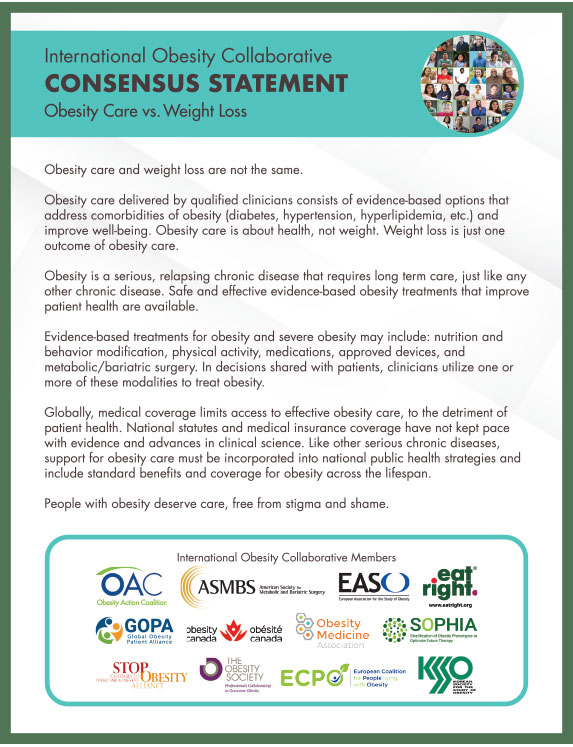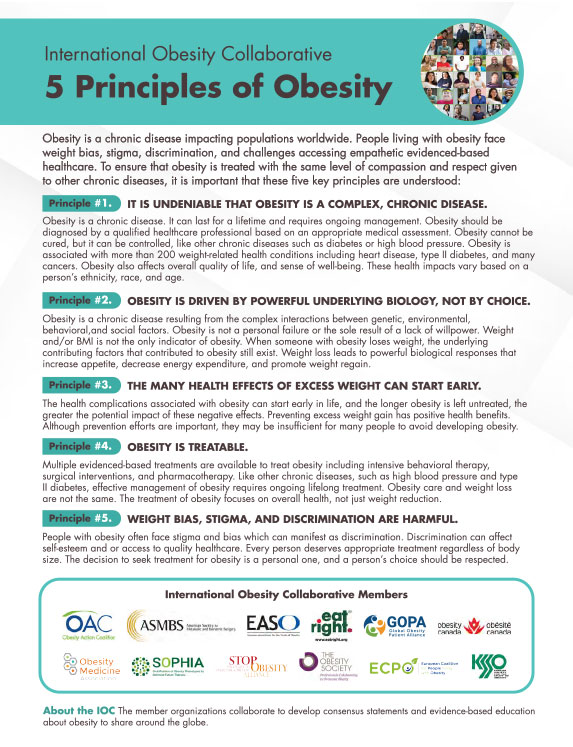About the International Obesity Collaborative (IOC)
- The International Obesity Collaborative is a group of organizations with collective action and a shared vision of improving the world for people living with obesity.
- The IOC uses a consensus process to solve for gaps in obesity education and advocacy.
- IOC member organizations collaborate to develop consensus statements and evidence-based education about obesity to share around the globe.
IOC Statement on Body Mass Index (BMI)

Body mass index (BMI) is a measure used to screen for obesity that neither defines the disease nor replaces clinical judgment. Social determinants, race, ethnicity, and age can modify the risk associated with a given BMI. Successful obesity management should be measured by the health and quality-of-life goals established through shared decision making by the patient and their healthcare provider rather than changes in BMI alone.
Download a PDF version of the IOC Statement on Body Mass Index (BMI)
IOC Statement on Obesity Care vs. Weight Loss

Obesity care and weight loss are not the same.
Obesity care delivered by qualified clinicians consists of evidence-based options that address comorbidities of obesity (diabetes, hypertension, hyperlipidemia, etc.) and improve well-being. Obesity care is about health, not weight. Weight loss is just one outcome of obesity care.
Obesity is a serious, relapsing chronic disease that requires long term care, just like any other chronic disease. Safe and effective evidence-based obesity treatments that improve patient health are available.
Evidence-based treatments for obesity and severe obesity may include: nutrition and behavior modification, physical activity, medications, approved devices, and metabolic/bariatric surgery. In decisions shared with patients, clinicians utilize one or more of these modalities to treat obesity.
Globally, medical coverage limits access to effective obesity care, to the detriment of patient health. National statutes and medical insurance coverage have not kept pace with evidence and advances in clinical science. Like other serious chronic diseases, support for obesity care must be incorporated into national public health strategies and include standard benefits and coverage for obesity across the lifespan.
People with obesity deserve care, free from stigma and shame.
Download a PDF version of the IOC Statement on Obesity Care vs. Weight Loss
5 Principles of Obesity

Obesity is a chronic disease impacting populations worldwide. People living with obesity face weight bias, stigma, discrimination, and challenges accessing empathetic evidenced-based healthcare. To ensure that obesity is treated with the same level of compassion and respect given to other chronic diseases, it is important that these five key principles are understood.
Download a PDF version of the IOC 5 Principles of Obesity
